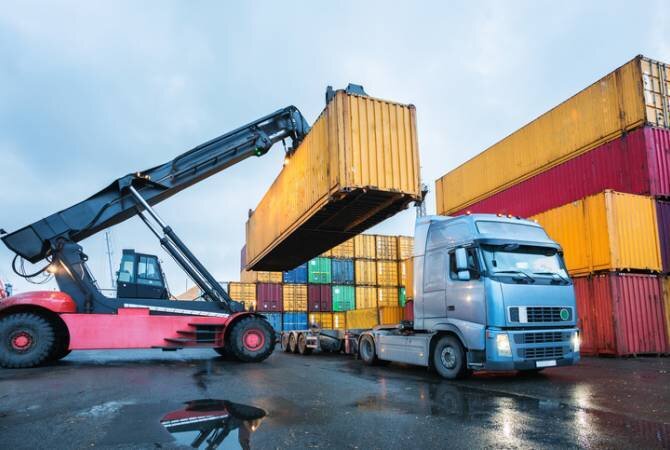Monthly non-oil export from Iran to Armenia up 144% yr/yr

TEHRAN- The value of Iran’s non-oil export to Armenia increased by 144 percent in the first month of the current Iranian calendar year (March 21-April 20), as compared to the first month of the past year, the spokesman of Trade Development Committee of the Iranian House of Industry, Mining, and Trade announced.
Ruhollah Latifi said that Iran exported non-oil commodities worth $32 million to Armenia in the first month of this year.
As previously reported, the value of Iran’s non-oil export to Armenia rose by 62.5 percent in the past Iranian calendar year 1401 (ended on March 20), from the preceding year.
Iran exported commodities worth $478 million to Armenia in 1401, while the figure was $294 million in 1400.
Liquefied natural gas, iron and steel rods, bitumen, light oils and related products, unalloyed iron and steel products, bituminous mineral oils, floor coverings, liquid cream, linear alkylbenzene, and rebar were Iran’s major products exported to Armenia in the past year.
Iranian Labor and Social Welfare Minister Solat Mortazavi has said Tehran and Yerevan are determined to use all their capacities to expand economic ties.
Mortazavi made the remarks in a meeting with his Armenian counterpart Narek Makratchian in Yerevan in late February.
Referring to the targeting of three billion dollars of annual trade between Iran and Armenia, Mortazavi said the development of all-out ties with Armenia is one of the priorities of the Islamic Republic of Iran.
The minister stated that the main approach of the Iranian government is to advance economic diplomacy with neighboring countries, especially in the Caucasus region, adding: “Iran and Armenia's interactions in the economic, commercial, and investment fields are going to be diversified.”
“The Islamic Republic of Iran is ready to put all its facilities and capacities in the service of establishing peace and stability in the Caucasus region,” he said.
Makratchian for his part referred to the long-standing and friendly relations between the two countries and noted that the joint cooperation between the ministries of labor of Iran and Armenia in the field of social welfare, employment, well-being, and the development of technical and vocational training complexes will expand with the formation of joint specialized working groups.
“The Ministry of Labor of the Republic of Armenia is fully prepared to develop economic and social cooperation with the Ministry of Labor of the Islamic Republic of Iran,” he stressed.
Mortazavi, who visited Yerevan on top of a high-ranking delegation, also met with Gnel Sanosyan, Armenia’s minister of territorial administration and infrastructures.
During this meeting, the minister expressed Iran’s readiness to cooperate with Armenia in all areas.
Iran and Armenia always enjoy very good friendly relations based on mutual respect and good neighborliness, he underlined.
The official emphasized the significance of Armenia for the Iranian foreign policy, saying that Armenia's role in the development of foreign relations and access to the Eurasian Union market is of prime importance for Iran.
He further mentioned some of the areas for mutual cooperation, saying that various projects in the fields of construction, road, tunnel digging, dam construction, urban development, energy infrastructure as well as technical and engineering services are among spheres of cooperation between Tehran and Yerevan.
The Armenian minister, for his part, said that the Armenian government pays special attention to the development of cooperation with the Islamic Republic in its five-year plan.
Iran and Armenia signed an MOU at the end of the two countries’ 17th meeting of the Joint Economic Committee in Yerevan last May.
The MOU, which covers cooperation in areas of transit, transportation, facilitation of exchange of goods, energy, development of environmental cooperation in Aras area and removal of pollution from border rivers, as well as medical tourism, was signed by Iranian Energy Minister Ali-Akbar Mehrabian and Armenian Deputy Prime Minister Mher Grigoryan, who are the chairmen of the two countries’ Joint Economic Committee.
In that meeting, which was attended by a large number of deputy ministers, senior officials, ambassadors, and members of parliament of the two countries, the main issues that play a key role in the development of relations between the two countries were discussed.
According to the officials, the purpose of holding the 17th meeting of the Iran-Armenia Joint Economic Committee was the real and tangible development of relations between the two countries.
Among the issues raised at the meeting were transit, transportation, facilitation of trade, and broader cooperation in the field of energy.
MA
